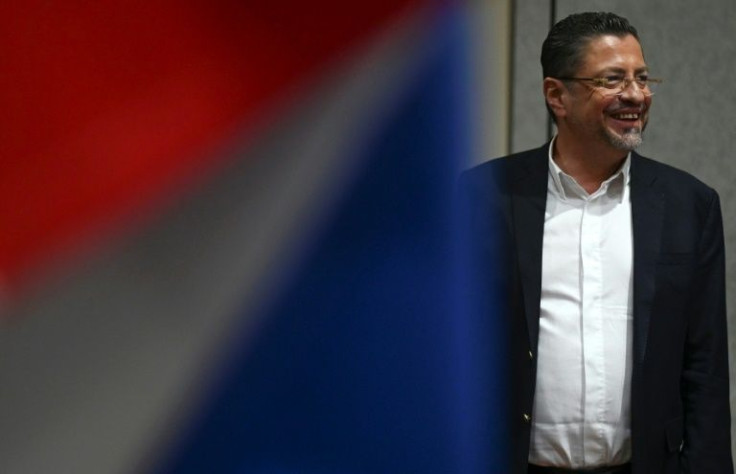Economist Sworn In As Costa Rica President
Economist and former finance minister Rodrigo Chaves was sworn in Sunday as Costa Rica's president for a four-year mandate focused on reinvigorating one of Latin America's most stable economies.
The former World Bank executive, who resigned from the global lender amid a sexual harassment scandal, has made it his mission to tackle Costa Rica's economic recline.
The country is faced with rising foreign debt -- about 70 percent of GDP -- a poverty rate of 23 percent, unemployment of 14 percent, and public sector corruption.
Tourism, one of the country's main economic drivers, was hard hit by the coronavirus pandemic, and the country of 5.2 million people experienced an increase in unemployment equaled in the region only by Peru.
"It is fundamental for the country that Chaves improves the economy," Adrian Aguiluz, a 35-year-old resident of the capital, said ahead of the inauguration.
"This new government has an opportunity to do something different."
Chaves, who served six months as finance minister in the outgoing government, won a runoff election over former president Jose Maria Figueres -- himself tainted by a corruption scandal.

The 60-year-old Chaves had been a surprise qualifier for the April 3 final race, having polled fourth ahead of February's first round.
While he was a senior official at the World Bank, where he worked for 30 years, he was investigated over sexual harassment complaints brought by multiple women.
He was demoted, and later resigned to take on the role of finance minister in President Carlos Alvarado's government.
Last month, Chaves offered "sincere apologies" to two accusers, young subordinates, having previously said the alleged harassment amounted to mere "jokes" that were "misinterpreted due to cultural differences."
This week, Chaves said his government would not ratify the Escazu Agreement that establishes protection for environmentalists, arguing it was unnecessary and would harm the economy. Costa Rica, a regional leader in environmental protection, had hosted the signing of the agreement in 2018.
The new president has also vowed to improve Costa Rica's deal with the IMF for a loan of more than $1.7 billion.
Spanish King Felipe VI attended the ceremony at Congress in San Jose, along with heads of state and delegations from nearly 100 countries.
© Copyright AFP 2024. All rights reserved.





















